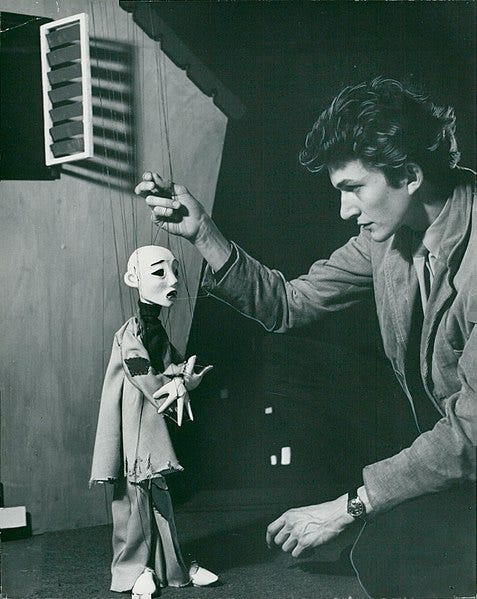In a recent Substack piece, Joshua Stylman makes the case that today’s information environment requires a more demanding form of information literacy.
Stylman concludes his piece by advocating for skills that go beyond “simple source trust” when verifying information:
Breaking free from manufactured reality requires more than awareness - it demands new skills, practices, and a collective sense of agency. The path begins with pattern recognition: identifying coordinated messaging across institutions, recognizing when divergent viewpoints are systematically suppressed, and understanding the broader systems of manipulation at work.
Information validation requires moving beyond simple source trust. Rather than asking "Is this source reliable?" we must ask "cui bono?" - who benefits? By tracing the connections between money, power, and media, we can uncover the structures that govern public perception. This isn't just about skepticism - it's about developing an informed, proactive stance that reveals hidden interests.
While fact-checkers and experts interpret reality for us, direct access to source material - whether public statements, original documents, or unedited video - bypasses this framing entirely. When we see raw footage of events, read actual scientific studies, or examine original quotes in context, the manufactured narrative often crumbles. This direct engagement with primary sources, rather than predigested interpretations, is crucial for independent understanding.
As Walter Lippmann noted, "The conscious and intelligent manipulation of the organized habits and opinions of the masses is an important element in democratic society... It is they who pull the wires which control the public mind." Our task isn't just to see these wires, but to develop the skills to sever them.
Building resilient networks becomes crucial in this environment. This isn't about creating echo chambers of alternative views, but establishing direct channels for information sharing and collaborative analysis. Supporting independent research, protecting dissenting voices, and sharing methods of discovery prove more valuable than just sharing conclusions.
Personal sovereignty emerges through conscious practice. Breaking free from source dependency means developing our own capacity for analysis and understanding. This requires studying historical patterns, recognizing emotional manipulation techniques, and tracking how official narratives evolve over time. The goal isn't to become impervious to influence, but to engage with information more consciously.
Moving forward requires understanding that truth-seeking is a practice rather than a destination. The goal isn't perfect knowledge but better questions, not complete certainty but clearer perception. Freedom comes not from finding perfect sources but from developing our own capacity for discernment.
Community builds resilience when it's founded on shared investigation rather than shared beliefs.
The most crucial skill isn't knowing whom to trust - it's learning to think independently while remaining humble enough to adjust our understanding as new information emerges. The greatest act of resistance isn't fighting within the boundaries of approved discourse - it's rediscovering our capacity to see beyond them. In a world of manufactured consent, the most revolutionary act is reclaiming our own ability to perceive.
To promote viewpoint diversity, Heterodoxy in the Stacks invites constructive dissent and disagreement in the form of guest posts. While articles published on Heterodoxy in the Stacks are not peer- or editorially-reviewed, all posts and comments must model the HxA Way. Content is attributed to the individual contributor(s).
To submit an article for Heterodoxy in the Stacks, submit the Heterodoxy in the Stacks Guest Submission form in the format of a Microsoft Word document, PDF, or a Google Doc. Unless otherwise requested, posts will include the author’s name and the commenting feature will be on. We understand that sharing diverse viewpoints can be risky, both professionally and personally, so anonymous and pseudonymous posts are allowed.
Thank you for joining the conversation!
Top Image: Michael-Meschke-with-his-puppets-142557445183.jpg/ Wikimedia Commons





These are all interesting and valid points -- but I think the ACRL Framework for Information Literacy in Higher Education covered most of these already: that authority is constructed, that research is a process, that some benefit more than others from information etc.
This article is spot on. And it made me wonder to what extent the Internet has not increased the level of misinformation people have to navigate, but that by increasing the range and volume of it and all the hew and cry about it, it hasn't just made manifest that before the Internet, misinformation was so controlled and monopolized that it wasn't generally possible to see it as such.